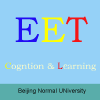-
Autodidactic learning
普通类 -
- 支持
- 批判
- 提问
- 解释
- 补充
- 删除
-
-
introduction
SHOULD I EXPERIMENT OR JUST ASK SOMEONE? With abundant information and resources to aid computer novices, a great majority still insist on the quick fix of just asking someone, "How do I...?" as opposed to experimenting and finding out for themselves how to accomplish a given task. This article examines the most common reasons for this tendency, and the most feasible solutions.
-
How do I?
While there may be many reasons as to why the novice prefers to ask another person for help instead of looking in a manual, the most common explanation is convenience. It is easier to simply ask someone how to perform a certain task than to look for the answer in an accompanying manual, for instance. Novices often find it difficult to formulate their queries in the first place.
Some non-human resources turn novices off by being too difficult or too unclear. On the other hand, well-designed resources can give novices confidence in their ability to solve their own problems.-
In addition to merely asking someone...
What non-human resources are usually available to help the novice? They can choose to use help wizards that are built into certain programs. An example of this is the gallery of intelligent agents offered in Microsoft Office. The agents help by offering (sometimes unsolicited) suggestions or by asking the user about their goal.
Other resources include CD-ROMs or videotape tutorials. Another option is to take computer-based training or instructor-led workshops. Still other resources include embedded tips in a given operating system. Examples of this are Tool Tip in MS Windows or Balloon Help for the Macintosh. And of course, there is the Internet with its various newsgroups, BBS, and web sites.-
So what should we do?
It is simply easier to ask another person for assistance. As instructional designers, we can recognize this by designing more accessible and intuitive self-help systems. A good example is the popular Microsoft Office Assistants. Essentially offering the same information as standard drop down menus, these assistants are nevertheless enjoyed and used. They are intuitive in that by merely typing a question, relevant choices are (usually) offered to solve a particular problem.-
Here's what should happen
Another facet of this successful help system is the assistant's ability to focus on a problem. As a user navigates through a series of questions posed by the assistant, extraneous information is passed over and the correct solution is ultimately found. This provides comprehensibility. This presentation of concise information instead of a thousand page manual explaining every possible function of a program is welcome to most novices
-
Author
Author: Eric M Logan
-
-
- 标签:
- help
- problem.
- asking
- ask
- resources
- easier
- autodidactic
- learning
- novices
- information
- manual
- intuitive
-
加入的知识群:



学习元评论 (0条)
聪明如你,不妨在这 发表你的看法与心得 ~